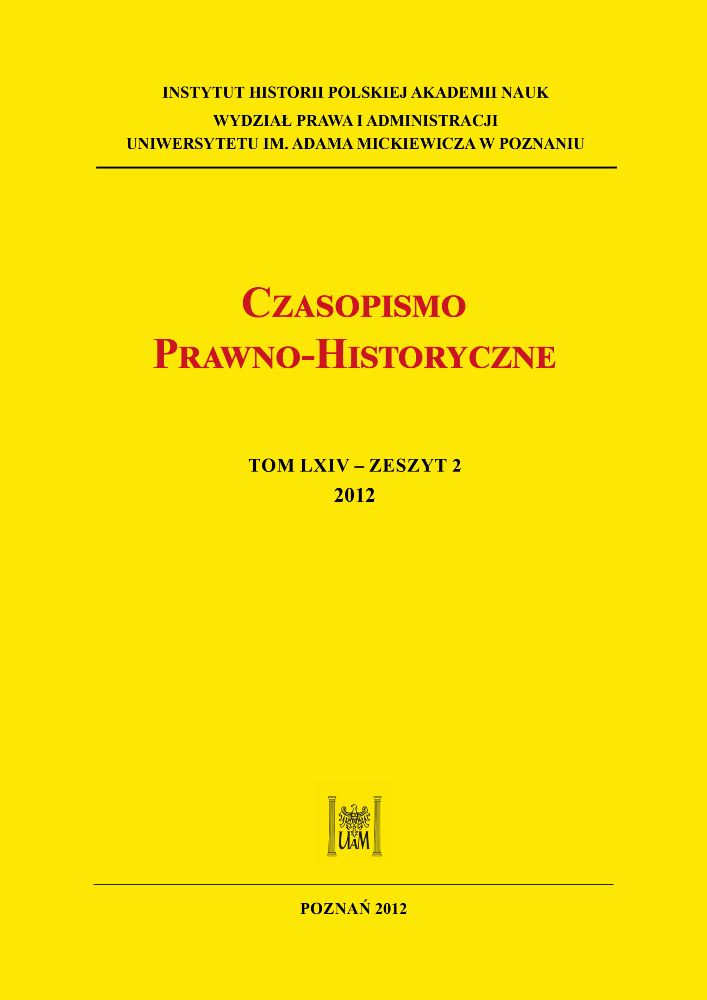Abstrakt
Among the allowable forms of termination of marriage in Justinian law were repudium and divortium. At the time of Christian emperors, however, under the influence of the views of the Christian Church, those practices were often criticised and there were attempts to limit, or restrict their use. The paper deals with repudium at the stage of codification. It must be said that at that stage Justinian did not introduce any radical changes to the existing foundations of the previous regulations. However, he distanced himself from the Church doctrine, and skilfully assessed the social expectations and needs, pointing, at the same time, that termination of marriage is a necessary evil, and it is the innocent children who suffer as a result thereof. Hence the welfare of the children (favor liberorum) was for Justinian one of the main reasons for restricting the right of a unilateral repudiation of marriage. The provisions of the former law that Justinian decided to uphold, were discriminatory against women, particularly with regards to penal sanctions for unjustified repudium. Undoubtedly, his major contribution to the regulation of matrimonial law was recognition of the husband’s incapacity of fulfilling his marriage duties as a ground for the wife’s repudium bona gratia. Another provision that is noteworthy and for which Justinian must be acknowledged is introduction of provisions securing alimony to the abandoned spouse and children in the event of a marriage without dowry. The measures undertaken by Justinian at the codification stage of the reformed matrimonial and family law constitute an unquestioned preliminary draft of the subsequent reformed law made in the Novellae.
Licencja
Copyright
© 2012 Wydział Prawa i Administracji UAM w Poznaniu
OPEN ACCESS




